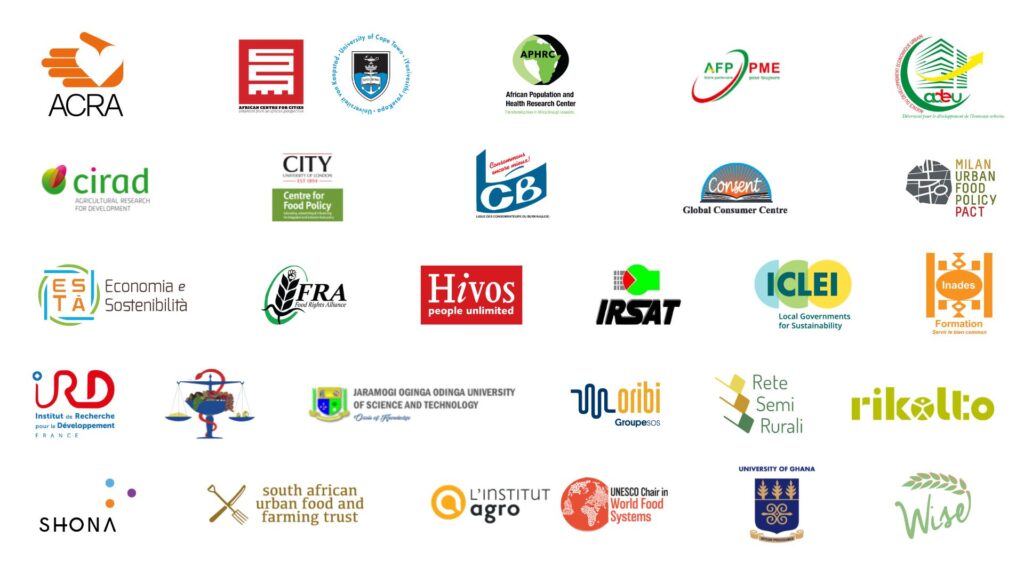Innovation in action: Reshaping African urban food systems through real-world experimentation
Innovation in action
Reshaping African urban food systems through real-world experimentation
A snapshot of transformation
The way in which cities are planned, designed and built shapes how resources move through them, and how residents lead their lives. A central premise of the AfriFOODlinks project is that the form of the urban food environment shapes how people make choices for food – and particularly determines their access to nutrition. Through a series of socio-technical experiments, the project is reshaping these environments to reduce food loss and waste, increase resource efficiency and livelihood creation, and improve uptake of safe, nutritious foods. Across 15 African cities, innovative AfriFOODlinks interventions are now taking shape, with significant strides being made that are meaningfully changing urban food systems across the continent. The overall implementation of these interventions is being guided by the African Population and Health Research Center (APHRC) and Centre de coopération internationale en recherche agronomique pour le développement (CIRAD) – two project partners who are key to coordinating and advancing these projects.
From market infrastructure upgrades in Kisumu to promoting food entrepreneurship in Ouagadougou; regulation of sodium levels in bread in Tunis to school food gardens that provide nutritious food to children in Dakar, these real-world experiments are tackling urgent challenges with practical, people-centered solutions. For more details about the different initiatives explore this infographic.
This photo essay offers a glimpse into the range of interventions already in motion – through the lenses of AfriFOODlinks partners on the ground. As the project continues on this trajectory towards lasting, real-world change, these snapshots of progress reflect the steadfast commitment, creativity and bold ideas that drive the transformation of African urban food environments.
Street food restaurants in Ouagadougou are central to the city’s food system – keeping many of its inhabitants fed on a regular basis. With the newly-constructed mobile counters, restaurant owners in the city are better equipped to provide healthy, nutritious food while maintaining food safety standards. AfriFOODlinks partner RIKOTLO is spearheading this initiative.
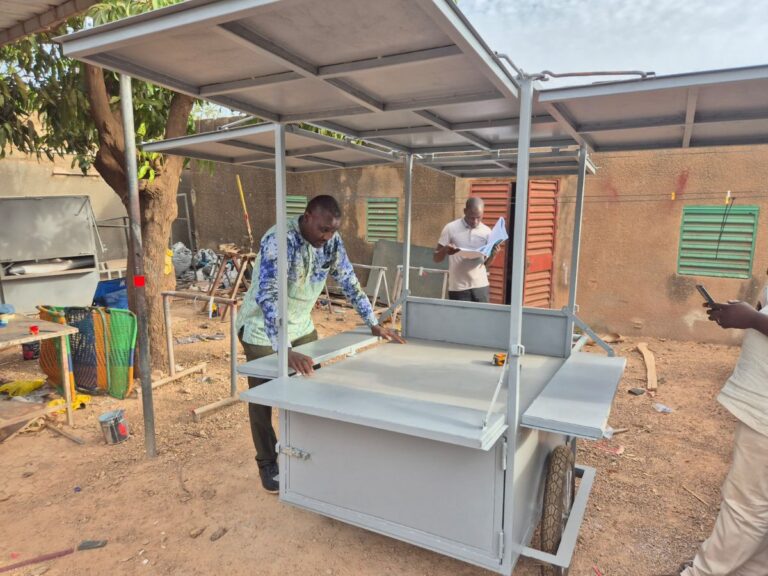
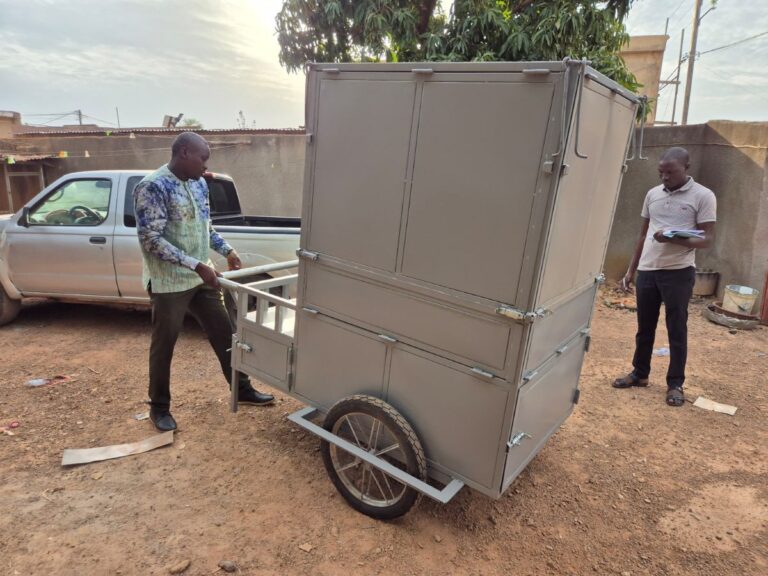
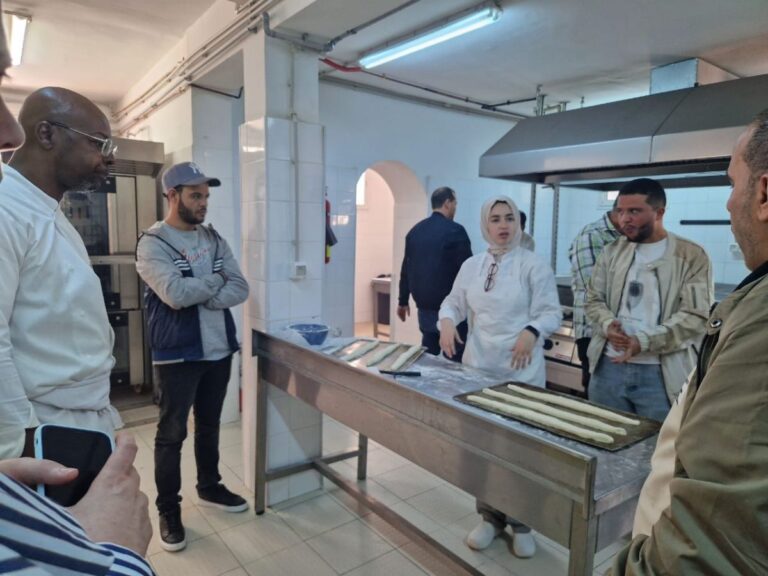
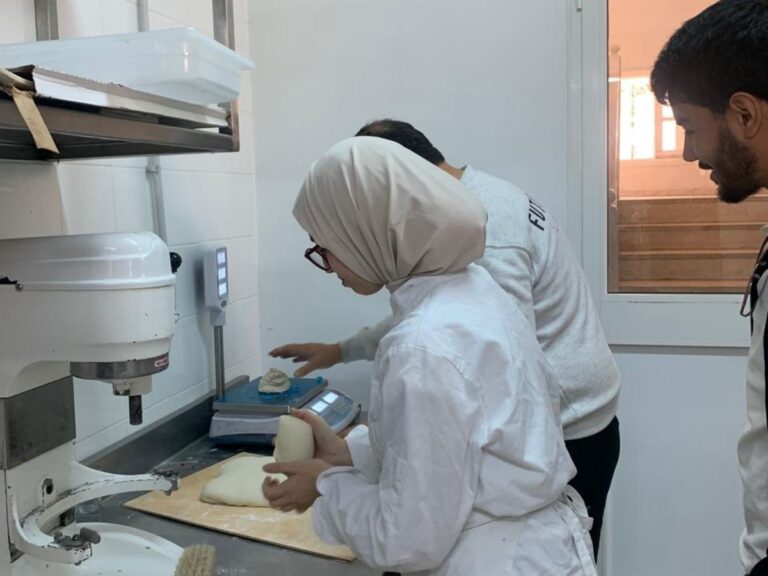
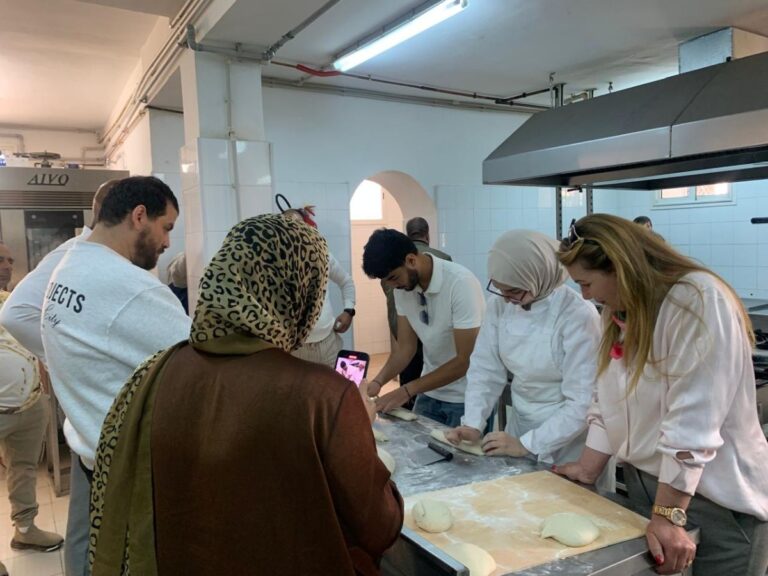
This training session, led by the head baker of the Ftartchi project, brought together bakers from across Tunis to learn new techniques for making bread richer in fibre and protein, while lowering its sodium content.
By targeting widely consumed food, this intervention – which Institut National de Nutrition et de Technologie Alimentaire (INNTA) is expertly taking forward – paves the way for enhancing the nutritional value of other staple foods to increase access to healthier options and advance food security.
A long-awaited market activation in Bellville (Cape Town) has finally come to fruition to tackle ongoing food safety and sanitation challenges on the ground.
As part of efforts to improve sanitation specifically, these accessible water stations are being tested in key spots across the market. With implementation being led by the South African Urban Food and Farming Trust,this hands-on initiative supports a stronger, more resilient market management model for the area. Other organisations and people involved in the activation include the Greater Tygerberg Partnership, VRCID, Local South, ORIBI, We.Collab, JSamson and AfriFOODlinks youth ambassador Sindile Kamlana.
Roving health and safety mentors are also on site to equip traders with practical tips and information to boost food hygiene and create a safer, healthier trading environment.
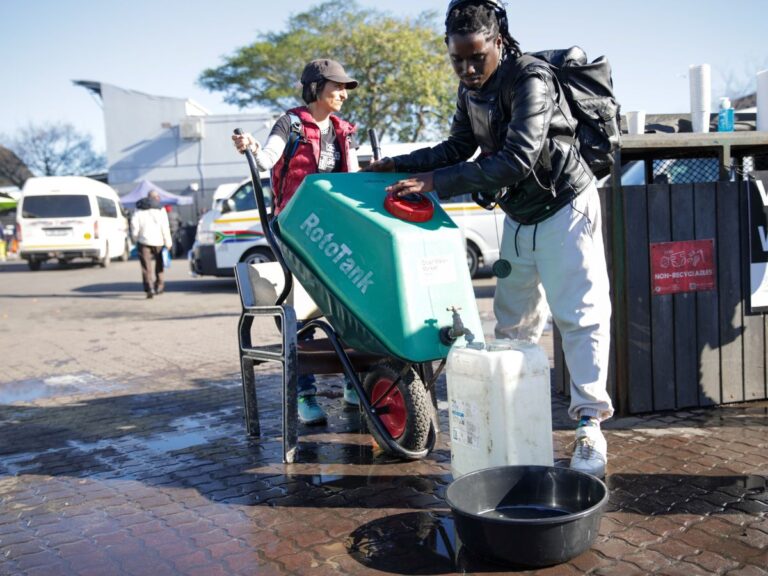
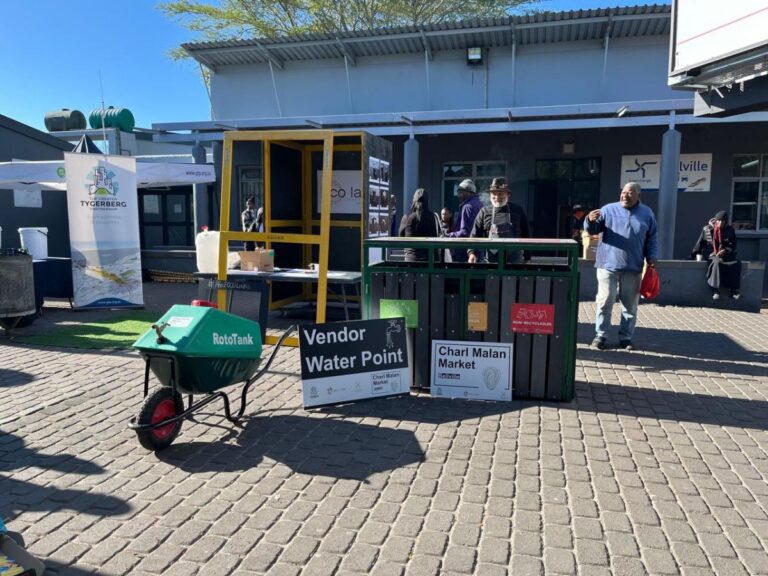
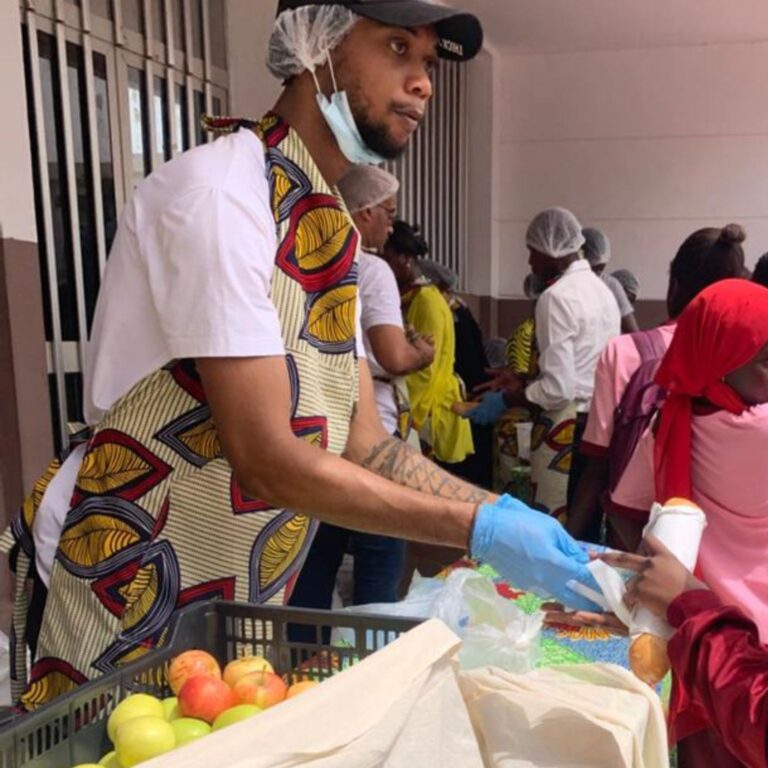
In Dakar, very few schools have functioning meal programmes that can provide children with healthy, nutritious food. With the support of a nutrition specialist, a canteen has been established at the school Lycée John F. Kennedy De Dakar with local ingredients such as millet, moringa, beans, corn and various fruits on the menu.
With ACRA at the helm, this school feeding intervention – which is currently in its first phase and soon to be replicated at three additional schools – is showing promise in the fight against malnutrition amongst children and food insecurity.
The seeds for a more sustainable, greener Niamey have begun taking root with the near-complete construction of a new municipal nursery. It will soon also serve as a training space for urban food producers to learn agroecological practices.
ACRA is implementing this initiative which aligns well with the city’s strategy to revive green spaces in the face of rapid urbanisation, increasing fresh vegetable consumption and strengthening local food security.
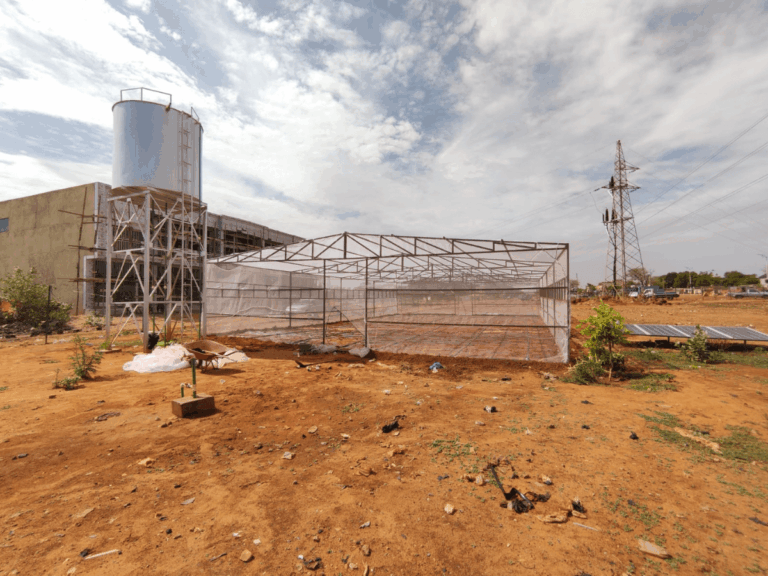
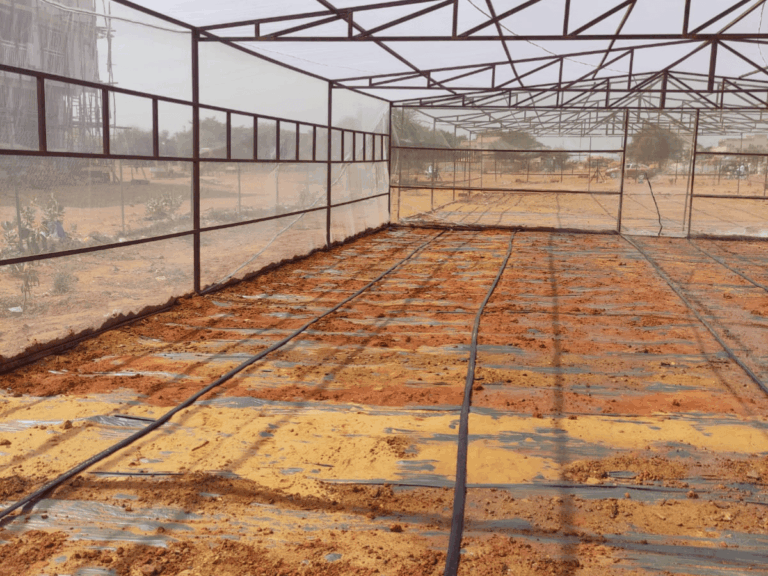
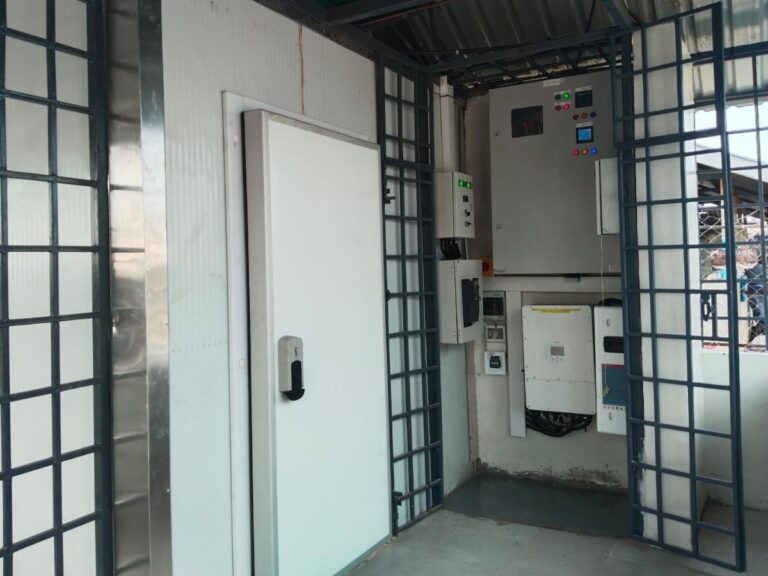
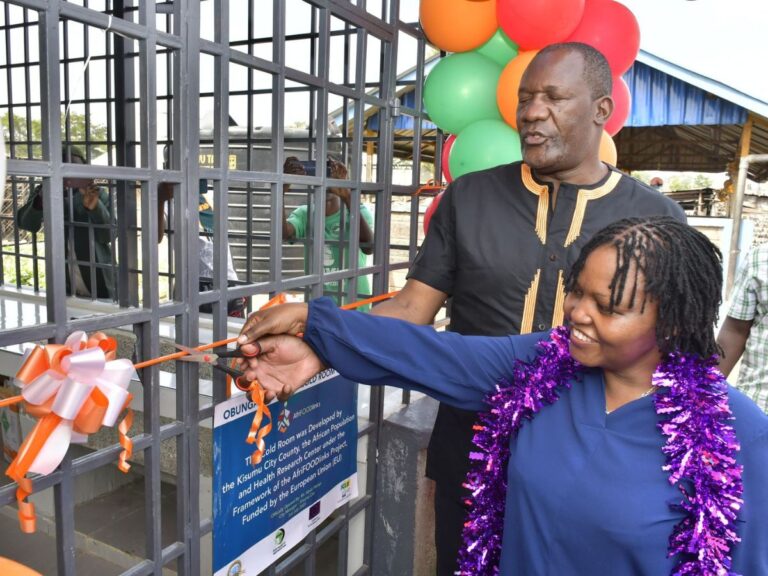
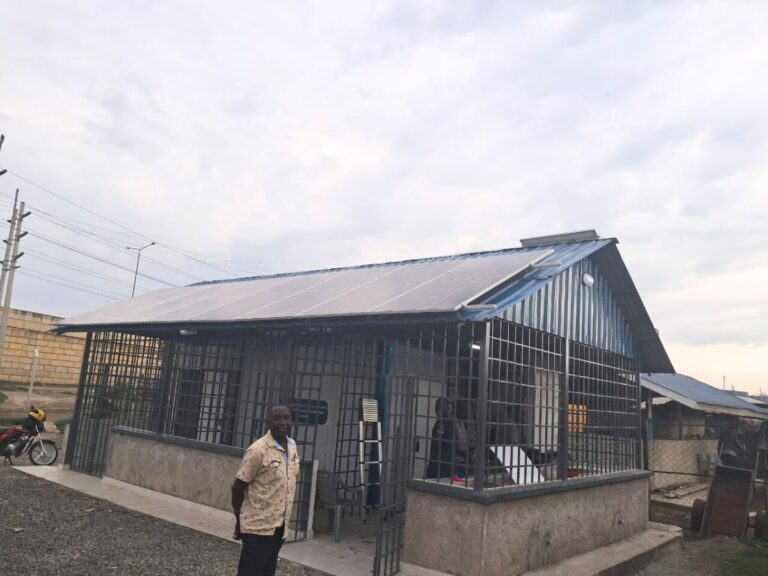
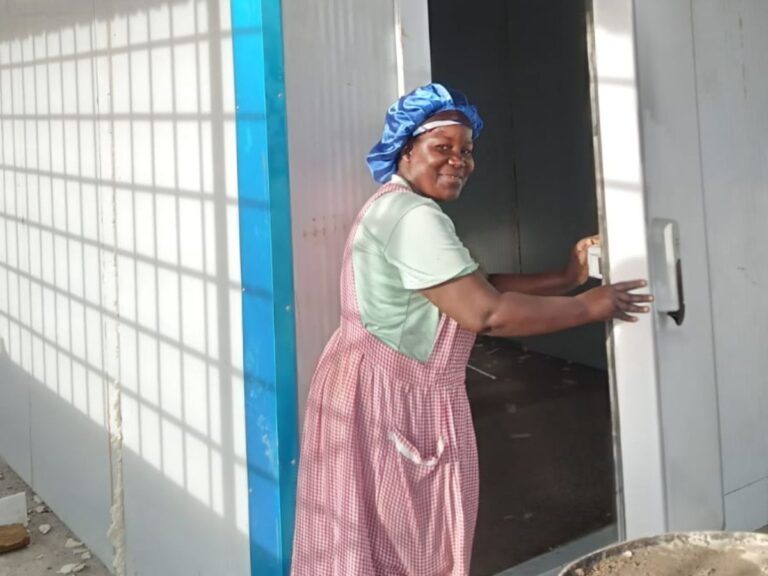
Unveiled by AfriFOODlinks partners: the African Population and Health Research Centre, in collaboration with the County Government of Kisumu and Jaramogi Oginga Odinga University of Science and Technology, the new cold storage facility at Obunga market in Kisumu is a thrilling new step towards extending food shelf-life, reducing post-harvest losses, strengthening food safety, improving public health, and securing livelihoods of market vendors – especially fish traders.
The infrastructure upgrade is a clear example of research-driven, community-informed solutions delivering meaningful impact on the ground.
At Farm Okukuna in Windhoek, vital infrastructure upgrades and skills development for small-scale farmers are boosting fresh food production at this urban farm. ICLEI Africa is the main implementing partner taking this transformative initiative forward.
This marks a major milestone toward a more sustainable, inclusive urban food system, addressing gaps in local fresh food production by connecting the farm’s harvests to informal markets, enhancing food security and promoting urban agriculture.
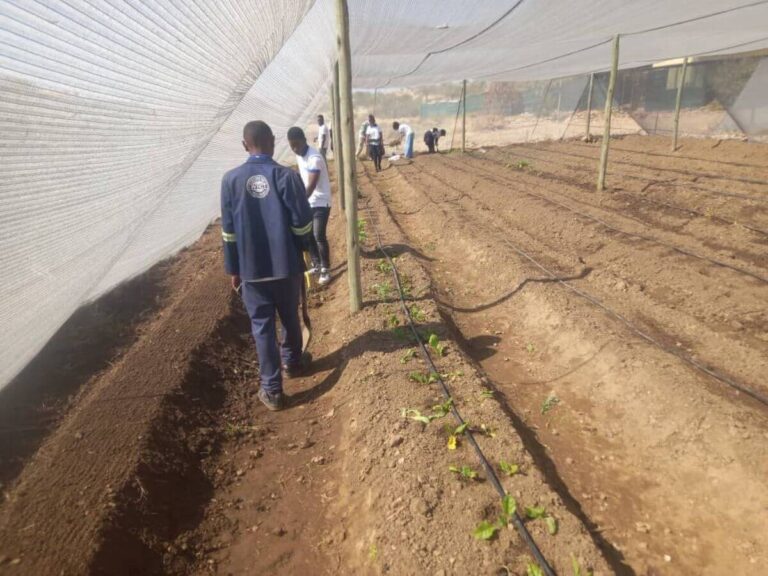
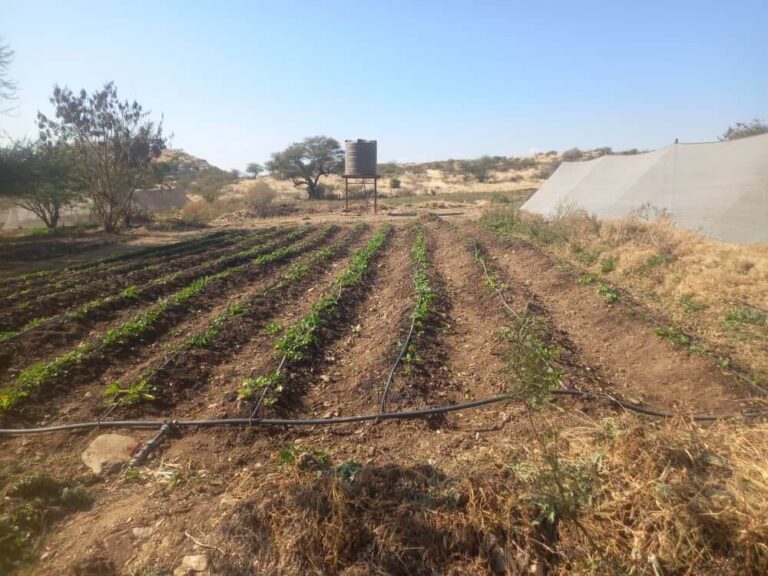
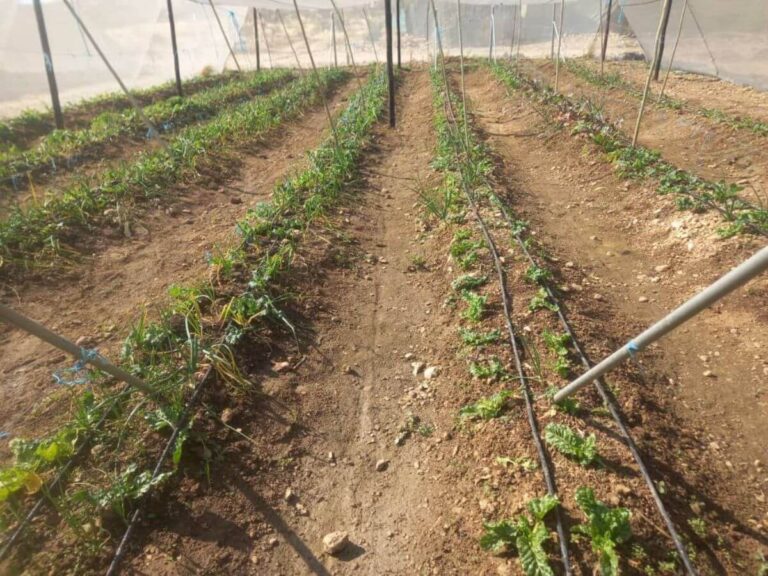
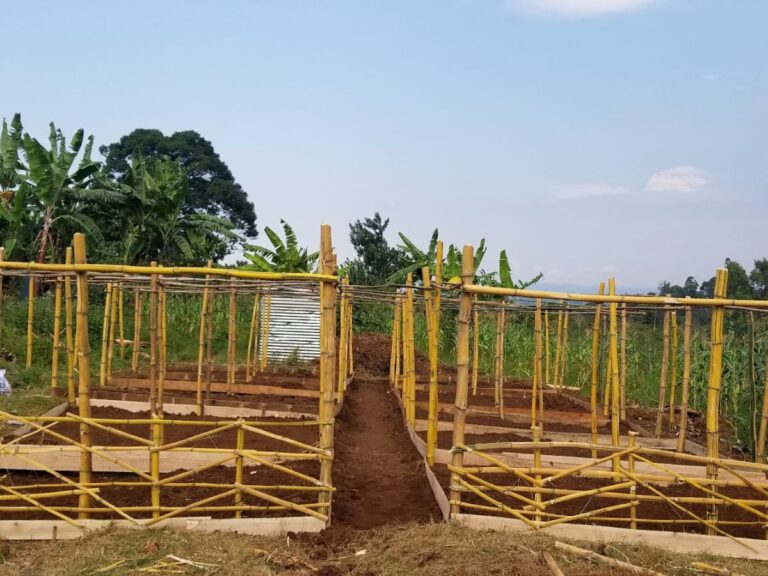
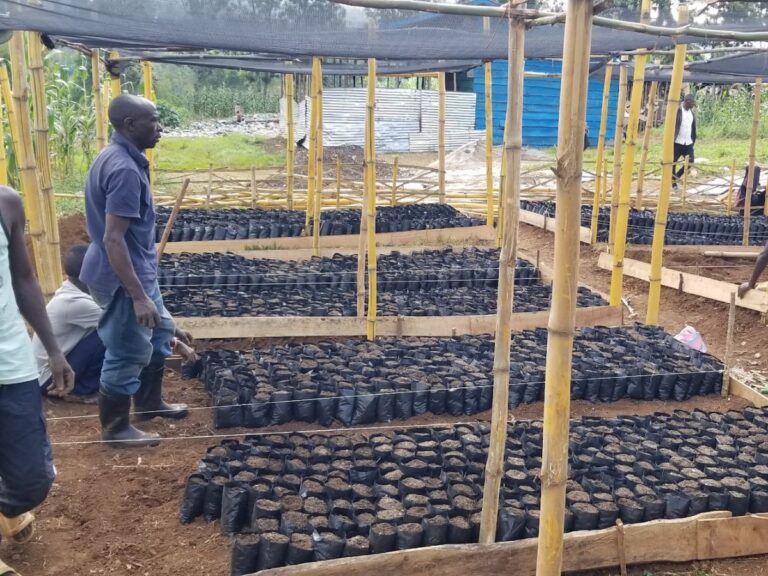
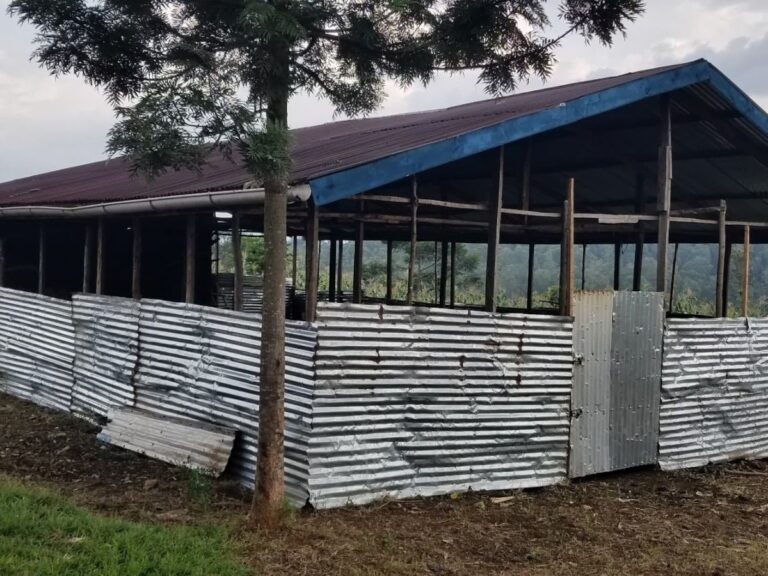
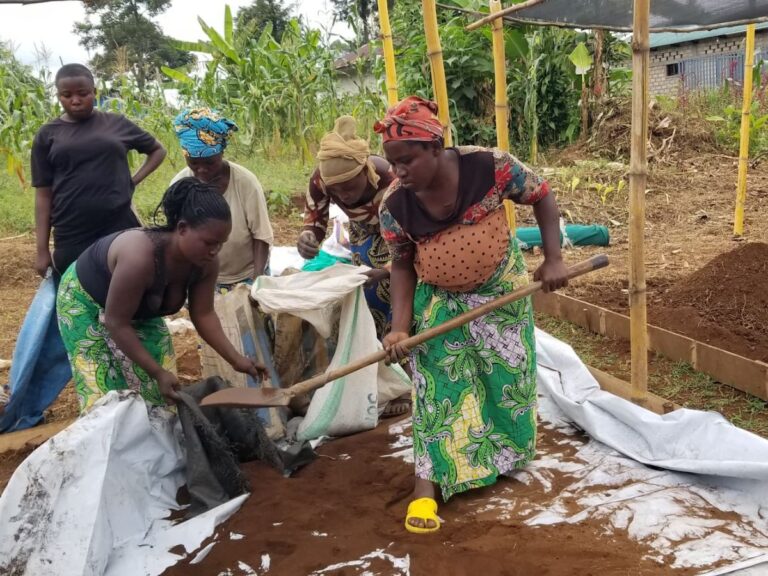
The launch of this mega-fruit tree nursery in Bukavu, under the capable leadership of RIKOLTO, takes ongoing research and mapping activities on circular economy and widespread waste mismanagement in the city’s urban markets into the real-world.
So far, this initiative has established 20 dedicated bio-waste collection facilities and a centralised waste segregation center. Plans for a mega-compost plant are also underway, with ongoing consultations involving horticulture producers.
Workshops like this two-day convening on youth participation in agrifood systems governance, amongst other activities led by Hivos for this intervention, are an integral part of the city’s shift towards a more inclusive and well-coordinated wider food system.
With the Lusaka’s Food Systems Office set to become a central hub for local food initiatives, engaging young people in policymaking, markets and innovation is incredibly important for strengthening food security.
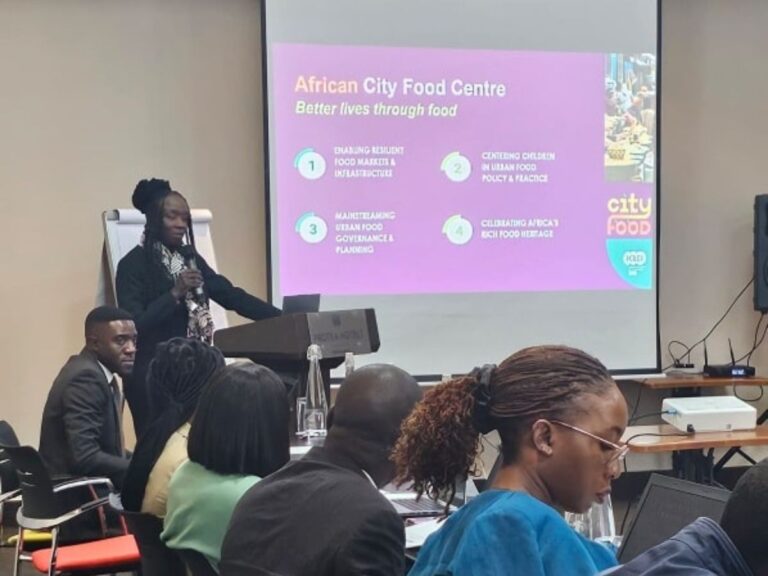
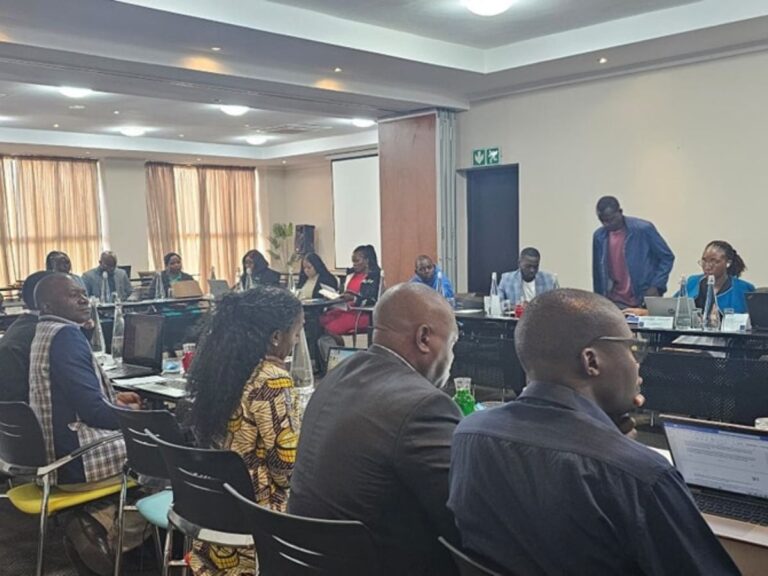
Project partners
AfriFOODlinks is delivered by a range of partners who represent an even mix of research institutions, food systems practitioners, city networks and advocacy organisations. These partners co-designed and continue to implement the range of initiatives featured here. We acknowledge and celebrate their incredible contributions.
